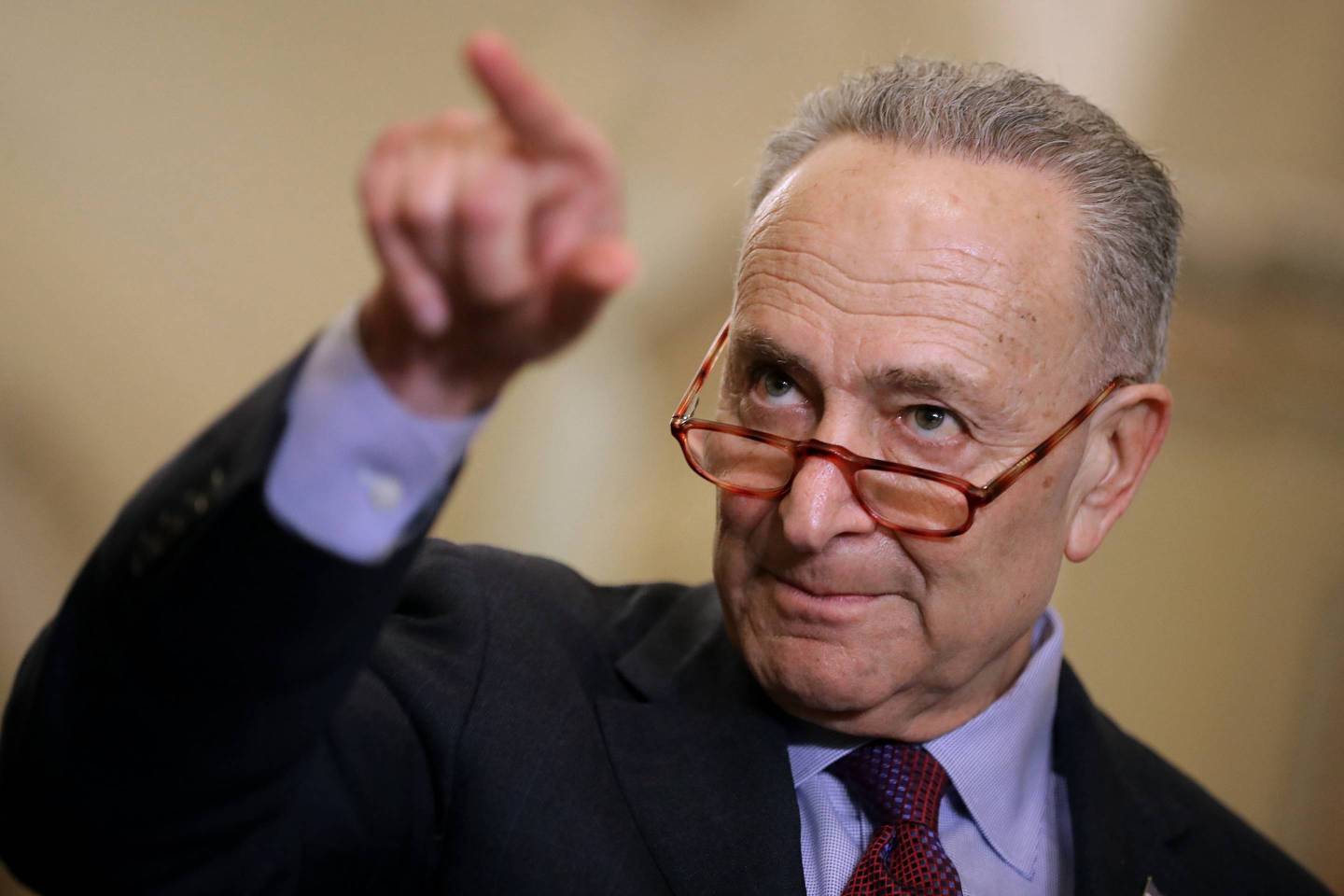A Democratic politician saying “no” to a Senate campaign has become nearly as common as one saying “yes” to a presidential run. Georgia’s Stacey Abrams said she won’t try for the Senate. Neither will Texas U.S. Rep. Joaquin Castro, Iowa U.S. Rep. Cindy Axne, or Montana Gov. Steve Bullock. Beto O’Rourke long ago spurned the Senate following his 2018 challenge of Ted Cruz with a campaign against Texas Sen. John Cornyn.
Their commitments to not run come at a time when Senate minority leader Chuck Schumer has said, “If we should get a Democratic president and retain a Democratic House, if Mitch McConnell stays the majority leader, nothing will get done.”
Though an individual calculus has informed the decisions of all candidates bypassing the Senate—in Texas and Georgia, for instance, a Democrat has not won a Senate election since 1988 and 2000, respectively—their decisions reflect a reticence to join a deeply divided and publicly-despised group that has been considered the most distinguished and exclusive body in politics.
“Alternatives generally look a little better now than they once did because the Senate is an unhappy place,” said Steven S. Smith, a professor of political science at Washington University of St. Louis and author of The Senate Syndrome: The Evolution of Procedural Warfare in the Modern U.S. Senate.
Alternatives include presidential campaigns for O’Rourke, Bullock, and former Colorado Gov. John Hickenlooper. Castro and Axne will defend their House seats. Josh Stein will try the same for the Attorney General position in North Carolina. Abrams has not ruled out a presidential run, but has indicated in her new book and in public appearances that her grand plan has always included a 2028 presidential run. She joked in March at the South by Southwest Conference that the job she wants for 2020 “will be one that pays.”
In the second half of the 20th century, there wasn’t a better political job than the Senate. It promised relative security and the opportunity for politicians to distinguish themselves.
Senators of the 1960s and 1970s could choose individual policy interests, sometimes gaining bipartisan support, and spend years laboring to bring them to fruition. By the 1990s, the potential for individuality had weakened because of the Newt Gingrich effect.
Gingrich became House Speaker in 1995 and introduced a scorched-earth brand of partisanship that spread to the Senate with 1990s Republican majority leader Trent Lott. Since then, Democrats and Republicans have taken turns eschewing longtime Senate traditions that once made the upper chamber of Congress a favored setting for politicians. In 2013, Democrats used the so-called “nuclear option” to ensure some of Barack Obama’s judicial and executive appointees were nominated, and Republicans did the same for Supreme Court nominee Neil Gorsuch in 2017.
“The sharp partisanship ultimately leads each party to say, ‘we can’t back down,’” Smith said. “And of course that’s a recipe for a parliamentary arms race. And to live in a parliamentary arms race is no fun for an individual.”
Neither are the campaigns. The cost required to wage a close Senate race in a big state in 2020 could approach or surpass $50 million. When O’Rourke ran for the Senate against Ted Cruz last year, he raised $78 million. In 2018, the total amount raised by Republican and Democratic Senate candidates, was just over $1 billion, according to the campaign finance website Open Secrets. The total, adjusted for inflation, was $803 million million in 2006, according to the site, and in 1994 was $579 million.
The massive sums mean if candidates win a seat, they have to start fundraising in year one, negating some of the flexibility a six-year term once provided for getting things done without spending time on the phone with donors every day.
The decision by high profile candidates to skip running hasn’t rattled Democratic strategists, such as Matt Angle, the director of the Democratic communications PAC The Lone Star Project. Before O’Rourke ran for Senate, earning endorsements from the likes of Beyonce and LeBron James, he wasn’t a household name in his own state.
Angle believes Cornyn would be in a “cold sweat panic” if O’Rourke were running for his seat, but said MJ Hegar in Texas and other less-heralded candidates, such as Mark Kelly in Arizona and Amy McGrath in Kentucky, will become better known as the election cycle progresses. Hegar, an Air Force veteran, earned a degree of fame in Texas last year for a promising, but ultimately failed, attempt to defeat Republican Congressman John Carter in the traditionally red Austin suburbs.
Around the country and especially in Georgia, Abrams is expected to use her popularity to promote others’ candidacies.
“Where if she runs for U.S. Senate, it’s going to be all about her,” Angle said. “She’s going to be asking for favors instead of giving them out.”
Her profile, along with O’Rourke’s, has already been lifted to levels higher than many senior members of the Senate. A few years of seasoning—and voting—in a polarizing Senate may alter their reputations in an undesirable way.
“The necessity of casting roll call votes in the Senate over a period of time means you’re kind of locked into a number of positions you may not want to defend if you’re running for the presidency,” Smith said.
More must-read stories from Coins2Day:
—How New York could become a factor in the 2020 presidential race
—Meet the 2020 Democratic presidential candidates you’ve (probably) never heard of
—These are the U.S. Goods affected by the China tariffs
—How to invest during a trade war
—Get up to speed on your morning commute with Coins2Day’s CEO Daily newsletter












